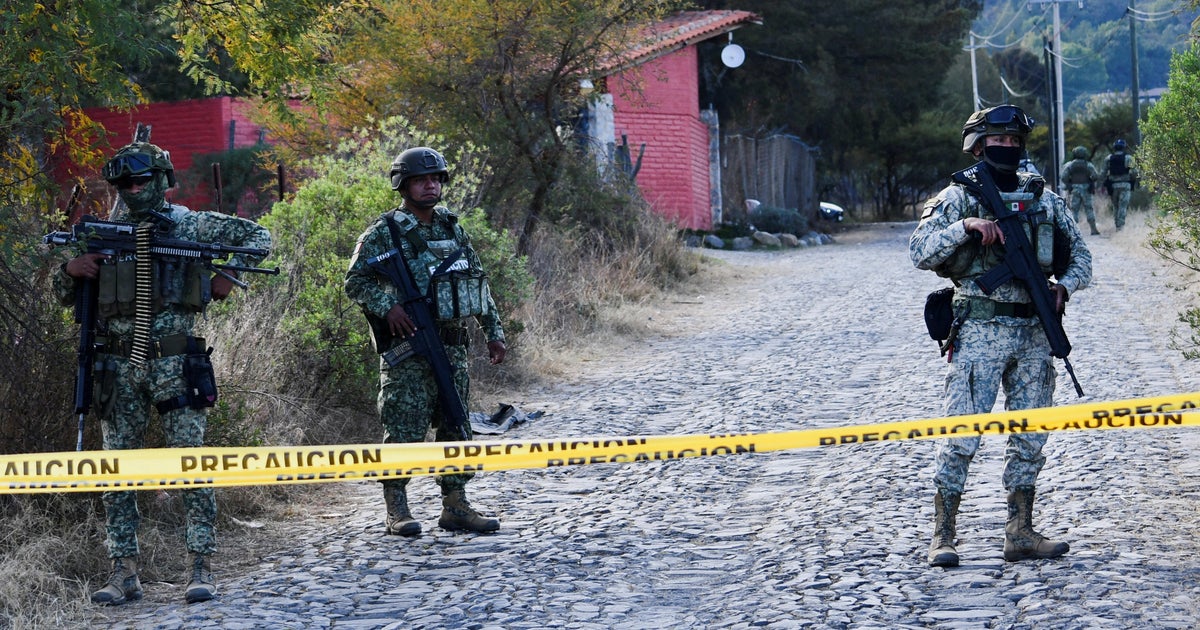Ancient "Earth monster" statue returned to Mexico after being illegally taken to U.S.
Mexico has recovered from the United States a giant stone statue known as an "Earth monster" that dates to the Olmec civilization before the Christian era, authorities said.
The elaborately carved statue weighs more than a ton and is nearly 6 feet tall and 5 feet wide, the National Anthropology and History Institute (INAH) said in a Saturday news release.
"Our Consul Jorge Islas in New York confirms to me that Mexico's most sought Olmec piece has been recovered and is about to return home, from where it never should have been taken," Foreign Minister Marcelo Ebrard tweeted.
The Olmec civilization predated those of the Maya and Aztec cultures, and its artisans were known for creating colossal stone heads, statues and upright slabs.
The institute said it believes the statue was created sometime between 800-400 B.C.
Known as Monument 9 of Chalcatzingo and found in the central Mexican state of Morelos, the bas-relief piece is believed to represent an "Earth monster," a creature that often appears in Olmec iconography, INAH said.
The name Chalcatzingo — which means "little Chalco" — was given to the statue by Mexican migrants during the Postclassic period (900-1521 A.D.), the institute said.
The open jaws of the piece symbolize the access to the underworld and "on its mouth is projected a sequence of three concentric bands, representing the cruciform access to a cavern," it added.
Although it is not known how and when it was illegally taken from Chalcatzingo, "it is documented that it was made public in 1968, by the archaeologist David Grove in the magazine American Antiquity. From there it is thought that at the beginning of the second half of the 20th century it was already in the United States," the statement said.
New York authorities recovered the monument, but the press release did not specify where it was found.
As part of the Mexican government's effort to rescue historical heritage taken from the country, almost 10,000 goods have been recovered since 2018, authorities said.
In a statement, archaeologist Mario Córdova Tello welcomed the recovery of the statue.
"This monument is a key piece for research on Olmec iconography, which is why we receive this news with joy and enthusiasm," Tello said.



